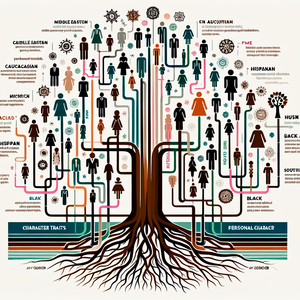The Eco-Friendly Shopper’s Guide to Nordstrom Rack

Nordstrom Rack has made significant strides in promoting sustainability by offering a wide selection of discounted items from top brands. The store's commitment to reducing waste and promoting ethical consumption is evident in its inventory of overstock, returned, and gently used items. By purchasing these items, shoppers can extend the lifecycle of quality garments, thereby reducing the demand for new production and minimizing their carbon footprint. The store also collaborates with brands that prioritize sustainability, ensuring that shoppers have access to eco-friendly options. From organic cotton tees to recycled polyester jackets, the variety of sustainable choices reflects a growing awareness of environmental issues within the fashion industry. For instance, brands like Patagonia and Eileen Fisher, known for their commitment to ethical practices, often have their products available at Nordstrom Rack, allowing consumers to make more responsible choices while enjoying significant savings.
Building an Eco-Conscious Wardrobe
1. Assess Your Current Wardrobe: Before diving into Nordstrom Rack, take stock of what you already own. Identify pieces you love and wear frequently, as well as items that no longer serve you. This assessment will help you make mindful purchasing decisions and avoid unnecessary additions to your wardrobe, ensuring that every piece you buy serves a purpose. 2. Prioritize Versatile Pieces: When shopping, look for items that can be mixed and matched with existing clothing. Neutral colors, classic cuts, and adaptable layers can create numerous outfits, maximizing the value of each piece. For example, a sustainable denim jacket can be paired with various tops and bottoms, making it a staple in your wardrobe that can transition from season to season. 3. Explore Sustainable Brands: While browsing Nordstrom Rack, keep an eye out for labels that emphasize eco-friendly practices. Brands that utilize organic materials, recycled fabrics, or ethical manufacturing processes are worth considering. Familiarizing yourself with these brands will empower you to make informed choices while shopping, ensuring your purchases align with your sustainability goals. 4. Embrace Second-Hand Finds: Shopping second-hand is one of the most sustainable choices you can make. Nordstrom Rack features a rotating selection of unique pieces that can add character to your wardrobe. Vintage-inspired dresses, pre-loved handbags, and shoes with history not only reduce waste but allow you to express your individuality. Each piece tells a story, making your wardrobe more personal and meaningful. 5. Seasonal Trends with a Twist: Keep an eye on current fashion trends, but opt for sustainable interpretations. For example, if oversized blazers are in style, consider finding a second-hand version at Nordstrom Rack instead of purchasing a new one. This approach allows you to stay on-trend while being mindful of your environmental impact, demonstrating that fashion can be both stylish and responsible.
Benefits of Shopping Second-Hand
The benefits of shopping at Nordstrom Rack extend beyond sustainability. Here are a few compelling reasons to consider second-hand shopping: - Affordability: Discounted items mean you can find high-quality pieces at a fraction of the original price. This allows you to invest in sustainable fashion without breaking the bank, making eco-conscious choices more accessible. - Unique Finds: Second-hand shopping offers the thrill of discovery. Each visit can yield unexpected treasures, from vintage clothing to one-of-a-kind accessories, making your wardrobe truly unique. The excitement of finding that perfect piece can be more rewarding than buying something brand new. - Quality Over Quantity: Many items at Nordstrom Rack are from reputable brands known for their craftsmanship. Investing in quality pieces ensures longevity, reducing the need for constant replacements and contributing to a more sustainable wardrobe. Fewer purchases of well-made items mean less waste overall.
Nordstrom Rack presents an excellent opportunity for eco-conscious shoppers to build a stylish and sustainable wardrobe. By taking advantage of the store’s diverse inventory of discounted items, prioritizing versatile and sustainable options, and embracing the uniqueness of second-hand finds, you can make a positive impact on the environment while looking fabulous. As the fashion industry continues to evolve, shopping responsibly has never been more accessible or rewarding. So next time you’re in search of stylish attire, remember that Nordstrom Rack is not just a place to save money—it's also a treasure trove for sustainable fashion. By making informed choices, you can enjoy the best of both worlds: fashion that looks good and a shopping experience that feels good.
Sustainable Fashion Buyer
Responsibilities
Research and source sustainable and ethically produced fashion products to include in the inventory.
Collaborate with brands that prioritize eco-friendly practices, ensuring alignment with company sustainability goals.
Analyze market trends and consumer preferences to make informed buying decisions that promote sustainable fashion.
Required Skills
Strong understanding of sustainable materials and ethical sourcing practices.
Excellent negotiation and communication skills for building relationships with suppliers.
Proven experience in retail buying or merchandising, ideally within the fashion industry.
Common Employers
Retail chains like Nordstrom, sustainable boutiques, or eco-conscious fashion brands.
Eco-Friendly Marketing Specialist
Responsibilities
Develop and execute marketing campaigns that highlight sustainable fashion initiatives and eco-friendly products.
Create engaging content for social media, blogs, and newsletters to educate consumers about sustainable shopping.
Analyze campaign performance and consumer engagement metrics to refine marketing strategies.
Required Skills
Proficiency in digital marketing tools and platforms, with a focus on sustainability messaging.
Strong writing and storytelling abilities to convey the brand’s commitment to eco-friendly practices.
Experience in marketing within the fashion or retail sector, particularly with a sustainability focus.
Common Employers
Fashion retailers, eco-friendly brands, and sustainable lifestyle companies.
Fashion Sustainability Consultant
Responsibilities
Advise brands and retailers on how to implement sustainable practices in their operations and supply chains.
Conduct sustainability assessments and audits to identify areas for improvement within companies.
Stay updated on the latest trends, regulations, and innovations in sustainable fashion.
Required Skills
Deep knowledge of sustainability standards and certifications relevant to the fashion industry.
Strong analytical skills to evaluate sustainability practices and recommend actionable solutions.
Experience in consulting or project management, with a focus on environmental impact.
Common Employers
Consulting firms, non-profit organizations, or as an independent consultant.
Second-Hand Retail Manager
Responsibilities
Oversee daily operations of a second-hand retail store, ensuring a positive shopping experience for customers.
Manage inventory acquisition, including sourcing high-quality second-hand items and assessing their condition.
Train and supervise staff on best practices for customer service and sustainable retailing.
Required Skills
Strong leadership and organizational skills to manage store operations effectively.
Knowledge of vintage fashion and sustainable retail practices.
Experience in retail management or a similar role, with a focus on second-hand or thrift stores.
Common Employers
Thrift stores, consignment shops, and second-hand retailers like Goodwill or local boutiques.
Supply Chain Sustainability Analyst
Responsibilities
Analyze and optimize supply chain processes to reduce environmental impact and enhance sustainability.
Collaborate with suppliers to implement eco-friendly practices and monitor compliance with sustainability standards.
Produce reports on supply chain sustainability metrics and recommend improvements.
Required Skills
Proficiency in data analysis tools and sustainability assessment methods.
Strong understanding of supply chain management principles and sustainable sourcing.
Experience in the fashion industry or a related field, focusing on sustainability initiatives.
Common Employers
Large fashion retailers, manufacturers, and companies emphasizing corporate social responsibility (CSR).


